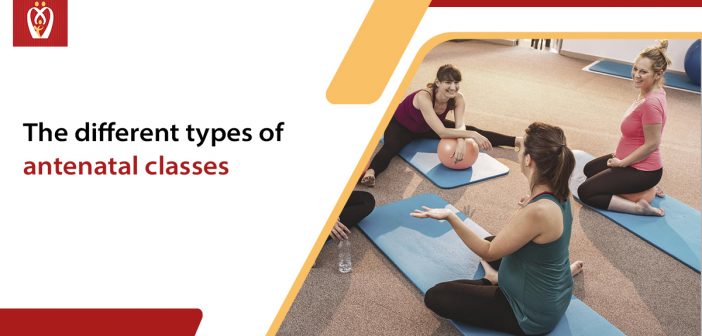Antenatal classes assist you and your spouse in preparing for pregnancy-related tasks such as labour, delivery, and postpartum care. Attending lessons, according to the majority of people, gives them greater self-assurance as their due date nears. Antenatal classes cover various topics like
- how to prepare for childbirth
- symptoms of childbirth
- when to contact the hospital
- the many phases of childbirth
- a variety of postures for giving birth
- relaxation techniques.
- parenting in its earliest stages
- breastfeeding
- the conduct of a newborn child
You’ll also run across a bunch of other people who are also expecting a child. Antenatal courses, according to many parents, provide a valuable opportunity to network with other parents going through a similar experience and learn from one another’s mistakes and triumphs.
You may obtain answers to your questions, learn more about the birthing centre, and even go there yourself to get a feel for the facility.
In order to accommodate the hectic lives of new parents, most birth and parenting classes last 12 hours a week for a period of several weeks.
It’s a good idea to sign up for antenatal classes roughly 20 weeks in advance since they tend to fill up rapidly. If you’re expecting more than one child, you’ll want to complete the course sooner rather than later, around 36 weeks.
In most cases, antenatal classes are held in hospitals or children’s centres, either under the direction of NHS midwives or with NHS funding. Because of the size of these gatherings, the emphasis may be more on disseminating information than promoting participation. To be prepared, it’s a good idea to inquire with your midwife about the average class size.
Are antenatal classes essential?
Antenatal classes may assist you and your partner in focusing on your pregnancy and preparing for labour and delivery, but they are not required. You’ll be more prepared for parenthood’s highs and lows if your lessons also cover the early days and weeks with your new baby.
Antenatal classes are a great way to meet other expectant parents. Depending on your due date, you may be matched with other pregnant women or couples who are also taking the programme. In the early months of motherhood, this may help you build a warm and supportive network of friends and family.
To get the knowledge and assistance you need, you don’t have to attend antenatal classes. To learn more about prenatal care, ask your midwife to give you or suggest a DVD you may borrow from a library or purchase.
Various kinds of antenatal classes
Antenatal classes come in a wide variety of forms. Visiting more than one variety may be beneficial. It is essential to ensure that the individual leading the class has received the appropriate training.
- early pregnancy
- Lamaze lessons
- learning birthing techniques and positions
- calm birth (childbirth education programme based on an understanding of the birth process)
- hypnotic birthing (a form of deep meditation and relaxation)
- aqua antenatal classes
- yoga or pilates for pregnant women
- breastfeeding preparation
These antenatal classes are also available for fathers, parents who can’t understand or speak English, parents expecting more than one baby, parents opting for caesarean and more.
What antenatal classes should I attend before I become pregnant?
Consider the following if you’re struggling to choose:
- Exactly how much time and assistance will you receive for your money in return? Depending on the course, you may have access to continuous help from your instructors, such as nursing support.
- Does the course provide a payment plan or a discount?
- if there are a lot of people involved. In a gathering of little more than 20 individuals, you are more likely to create new friends.
- What are your primary interests, and does the course address them? Hypnobirthing, yoga or first aid training might all be included in this.
- Is there a chance to work with a partner in a small group?
- Is there a postnatal session included in the course?
- Is the facilitator well-versed and up-to-date on the latest techniques? You should inquire as to whether the course is taught by a midwife, an adult education practitioner, or someone with a lower degree of expertise. Ask the facilitator whether he or she is a member of any professional organisation.
- Do you have a lot of time available to devote to the course? Consider the time it takes to get to your destination and the cost of parking.
- Have you been referred to the course by friends, family, or other mothers?
- Is the location acceptable for the course?
Some antenatal classes may be taken online. For parents who can’t make it to face-to-face courses, these might be a fantastic solution. The only downside is that you won’t be able to meet other parents during the course.
Rest assured, Nurturey’s Pink Book manages and keeps track of every single thing during and after your pregnancy! Visit https://www.nurturey.com/ to know more.




